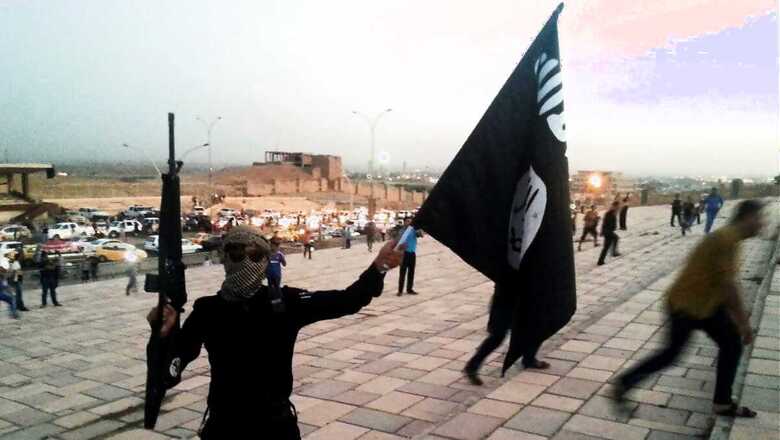
views
If the Islamic State’s claim that it was behind the Moscow concert hall attack is proved correct, it would be the latest in the number of jihadist attacks in or against Russia in recent years.
The attack has been claimed by Islamic State Khorasan (ISIS-K), named after an old term for the region that included parts of Iran, Turkmenistan and Afghanistan, which emerged in eastern Afghanistan in late 2014.
The group is an offshoot of the original Islamic State of Iraq and Syria (ISIS) aka Daesh. The group has offshoots like the ISIS-K and Islamic State’s West Africa Province (ISWAP) along with other sympathisers and affiliate groups spread out from Somalia to North Caucasus and Congo to Indonesia. Barring ISIS-K and ISWAP, the other affiliates are not active but have carried out lone-wolf attacks.
Islamists have attacked Russia on several occasions – sometimes attacks were made inside Russia and on occasions outside Russia.
A Russian plane was blown up over Egypt’s Sinai desert in 2015 with 224 people on board, most of them Russian citizens. Islamic State claimed the attack and later published a photograph of the explosive device.
The bomb attack on the St Petersburg metro that killed 15 people in 2017 was also linked to radical Islamists.
The ISIS-K, however, did target Russia earlier as well. Back in 2022, the group using a suicide bomber hit the Russian embassy in Afghanistan’s capital city, Kabul.
The North Caucasus region has been a recruiting ground for ISIS. The region has witnessed tensions especially the Chechen wars where Chechen rebels fought two bloody wars against the Russian Federation following the fall of Soviet Russia.
ISIS uses these sentiments in the region to attract recruits and through its criticism of Russia’s military presence in Syria and its support for Iran manages to attract young people into its ranks. The ISIS also has a lesser known offshoot in the region named Vilayat Kavkaz Islamskogo gosudarstva or the Islamic State – Caucasus province.
Russia’s fight against ISIS-backed jihadists in West Africa and its affiliates like ISWAP has also angered the group which has dwindled following its fall to coalition forces in the last decade.
The group radicalises Muslim youth in Russia claiming that Russia oppresses its Muslims and commits violence towards them. It also reminds them of the Soviet invasion of Afghanistan claiming that Moscow has a tendency to invade and occupy Muslim lands.
Large number of people from the Caucasus region also joined the IS when it had just formed. Some terrorists who operate there earlier declared their allegiance to ISIS.
Rustam Asildarov, for example, is one such leader. He was the chief of the Caucasus Emirate’s Vilayat Dagestan wing and was known by his name Emir Abu Muhammad Kadarsky. The Vilayat Dagestan were responsible for the Moscow train attacks. Asildarov was formerly a member of the Shariat Jamaat which earlier fuelled jihadist conflicts in Chechen regions of Russia.
He was killed in 2016 by the Russian Federal Security Service (FSB) in Makhachkala, Dagestan.
The ISIS-K claimed that it carried out the attacks that killed at least 115 in Friday’s attack on the Crocus City Council concert hall in Moscow’s northern Krasnogorsk suburb. The US has also said that the claim sounds credible based on the intel it received from its officials.
(with inputs from AFP, The Diplomat-Asia, CNN, AFP)














Comments
0 comment